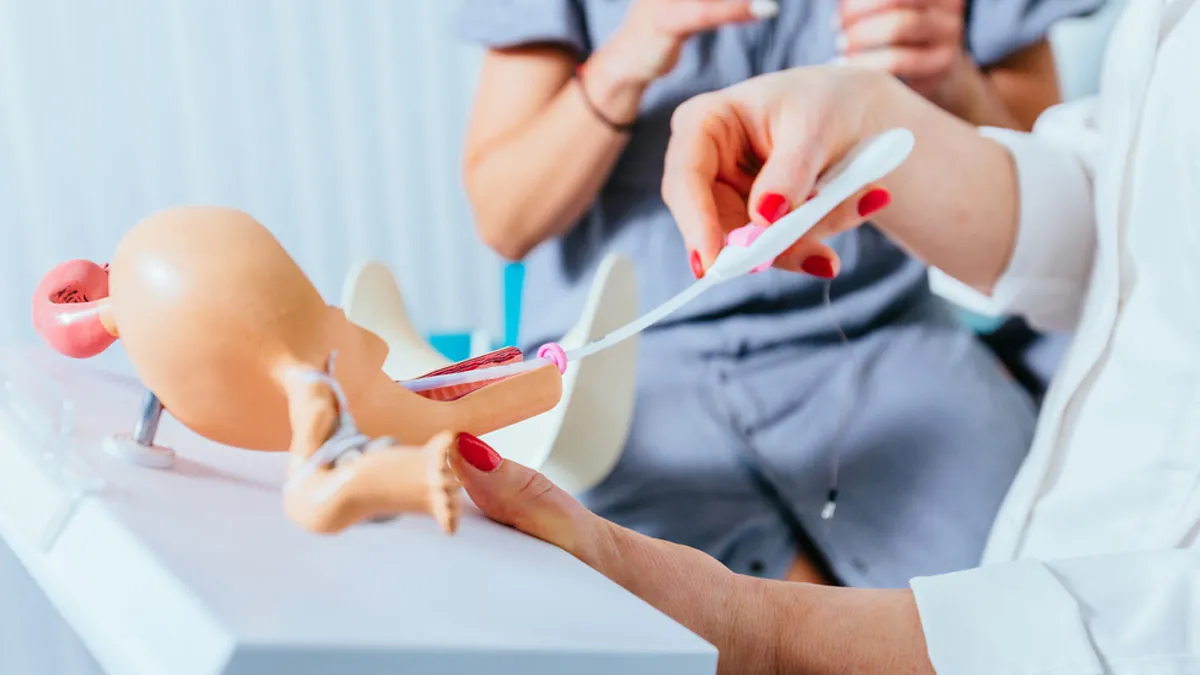
Why does Intrauterine Insemination (IUI), a fertility treatment, fail even when everything seems to be in place? For couples facing repeated disappointments, this question becomes increasingly pressing. IUI is a procedure where sperm is directly placed into the uterus around the time of ovulation to increase the chances of conception. When repeated IUI attempts don’t lead to pregnancy, it’s essential to reassess potential underlying issues and explore alternative options.
Table of Content:-
We spoke to Dr Kinjal Avdhut Kothari, Associate Consultant, Obstetrics and Gynaecology, Manipal Hospital, Goa, who explained the possible reasons behind IUI's failure to help couples and their doctors make informed decisions about the next steps in their fertility journey.

According to a 2009 study, the primary reason for using intrauterine insemination (IUI) is to address cervical issues. However, IUI is also applicable for cases of low sperm quality, immunological infertility, and in men with physical challenges in sperm delivery, such as hypospadias. For the procedure to be effective, there should be a minimum of 5 million to 40 million motile sperm present in the ejaculate, calculated based on volume, concentration, and motility.
Causes of IUI Failure and How to Boost Chances of Success
Reevaluate

Before proceeding with further IUI attempts, it is crucial to revisit the initial fertility workup. The male and female partners should undergo detailed evaluations to identify previously overlooked factors.
"A woman's ovarian reserve should be assessed with an AMH (Anti-Müllerian Hormone) test. Also, an ultrasound may help evaluate the condition of the ovaries and uterus. For men, repeating a semen analysis can help identify any changes in sperm count, motility, or morphology," said Dr Kothari.
Also Read: IUI Vs. IVF: Understanding The Difference And Determining Which Is Right For You
Ovulation Induction

Ovulation is a key component in the success of IUI. "If the patient is not ovulating regularly or responding well to ovulation induction medications, this could be a contributing factor to failure. In some cases, switching or adjusting fertility medications may help improve ovulation," added Dr Kothari.
Monitoring follicular growth closely through ultrasounds and blood tests can also provide more insight into whether the correct number of follicles is being produced.
Tubal Patency
Blocked or damaged fallopian tubes can be a vital factor in IUI failure. If this has not been assessed thoroughly through procedures like a Hysterosalpingogram (HSG) or sonohysterogram, it may be worth reconsidering.
If there is evidence of tubal blockage or abnormalities, assisted reproductive technologies, such as In Vitro Fertilisation (IVF), may be a more appropriate next step. This is because IUI relies on the fallopian tubes for the fertilisation process.
Uterine Anomalies

Embryo implantation requires an optimal healthy environment of the uterus. Endometriosis, combined with fibroids or polyps, can create significant obstacles to implantation. "Medical evaluations through ultrasound or hysteroscopy enable healthcare providers to diagnose uterine conditions which might obstruct pregnancy. These issues need resolution because they will enhance the probability of achieving pregnancy through IUI or alternative fertility treatments," explained Dr Kothari.
The endometrial lining functions as an essential factor for implantation to occur. Ultrasonography is a vital tool for monitoring Endometrial Thickness (ET). Additionally, oestrogen medication may be prescribed as needed.
Also Read: Intrauterine Insemination: Expert Explains The Relevance Of IUI In The World Of IVF
Semen Evaluation
The success rate of IUI depends heavily on sperm quality evaluation. "Advanced sperm processing techniques together with donor sperm might become options when sperm analysis displays unrecoverable poor parameters, including low motility alongside abnormal morphology or low count," said Dr Kothari.
The success of IUI depends on exactly when the procedure should be performed. The inability to properly time insemination with ovulation periods prevents conception. Thus, improved ovulation prediction methods using kits, tests, or ultrasounds can increase success rates.
Immunological and Genetic Factors
Immunological issues can sometimes cause implantation failure. People may experience difficulties with sperm antibodies or problems with endometrial tissue that hinder embryo implantation. "Diagnosis and treatment of immune-related infertility conditions can be accomplished through meetings with specialists who have experience in this field. Testing for conditions like Antiphospholipid Antibody Syndrome (APLA) is necessary. In certain situations, Preimplantation Genetic Testing (PGT) can be a useful diagnostic tool,” explained Dr Kothari.
Psychological Support
Repeated unsuccessful IUI procedures create an emotional burden which harms the mental health of couples. The emotional stress and anxiety as well as the ongoing disappointments from infertility treatments have negative impacts on treatment success rates. The treatment process should include psychological counselling along with support groups and stress-reduction therapies to establish comprehensive care.
IVF
"Repetitive failures in IUI treatments require medical professionals to evaluate IVF as the next course of action. IVF provides a managed approach to fertilisation by extracting eggs from ovaries to perform laboratory fertilisation before uterus implantation. The treatment method delivers improved success rates by avoiding certain IUI restrictions," concluded Dr Kothari.
[Disclaimer: This article contains information provided by an expert and is for informational purposes only. Hence, we advise you to consult your professional if you are dealing with any health issue to avoid complications.]
Also watch this video
How we keep this article up to date:
We work with experts and keep a close eye on the latest in health and wellness. Whenever there is a new research or helpful information, we update our articles with accurate and useful advice.
Current Version